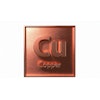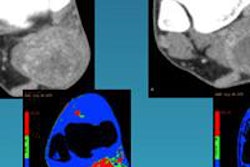A number of prostate cancer studies are being presented this week at the American Society for Radiation Oncology (ASTRO) annual meeting in San Francisco.
In one study, researchers found that high-risk prostate cancer patients who received radiation therapy (RT) and an 18-month course of androgen deprivation therapy (ADT) recovered a normal testosterone level in a shorter amount of time than patients who received a 36-month course of ADT. Lead author Dr. Abdenour Nabid, from Centre Hospitalier Universitaire de Sherbrooke in Quebec, and colleagues analyzed 561 patients from a multicenter, randomized phase III trial. The results suggest that a shorter course of ADT could yield better quality of life without hurting long-term outcomes, they concluded.
In another study, prostate cancer patients who received high-dose radiation therapy (HDRT) followed by longer-term ADT had greater five-year biochemical disease-free survival and overall survival than patients who received HDRT and a shorter duration of ADT. The multicenter study in Spain evaluated whether HDRT combined with long-term ADT for 28 months was associated with better patient outcomes than HDRT with short-term ADT for four months. After a median follow-up of 63 months, the five-year biochemical disease-free survival rate was significantly higher in the long-term group (90%) than the short-term group (81%). Overall survival was also significantly better in the long-term group (95%) versus the short-term group (86%), according to lead author Dr. Almudena Zapatero, PhD, and colleagues.
In a third study being presented at ASTRO 2014, researchers found that prostate cancer patients who received hypofractionated (HPFX) radiation therapy reported that their quality of life, as well as bladder and bowel functions, were at similar levels before and after RT. Lead author Dr. Jeffrey Brower, PhD, from the University of Wisconsin Hospital and Clinics, and colleagues designed three different HPFX regimens for the phase I/II trial, which included 343 patients with low- to intermediate-risk prostate cancer. The results support the role of hypofractionation for prostate cancer treatment, potentially resulting in shorter treatment times and improved quality of life, they concluded.
Finally, using vessel-sparing radiation therapy could lead to a cure for prostate cancer patients without compromising long-term sexual function, according to a five-year comparison of sexual function outcomes. The study included patient-reported outcomes of 91 men with prostate cancer who received MRI-guided, vessel-sparing radiation at the University of Michigan Providence Cancer Institute. Of the 91 patients, 42 received external-beam radiation therapy (EBRT), while 49 received EBRT plus brachytherapy. With the vessel-sparing technique, 79% of patients who received EBRT and 92% of patients who received combination therapy reported the ability to be sexually active with or without aids at five years' post-treatment.



















